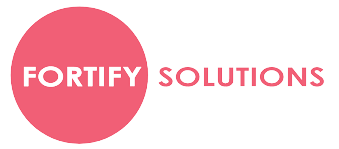“YOU builds the future, FORTIFY makes it secure"
Secure Code Review Methodology
At Fortify Solutions, our Secure Code Review is a systematic examination of source code designed to identify vulnerabilities, logic flaws, and insecure practices before they become exploitable risks. Following OWASP Secure Coding Guidelines, we combine automated analysis, manual review, and business logic validation to ensure your applications meet the highest security standards.
PENETRATION TESTING
Fortify Solutions
8/1/20251 min read
Secure Code Review Methodology
At Fortify Solutions, our Secure Code Review is a systematic examination of source code designed to identify vulnerabilities, logic flaws, and insecure practices before they become exploitable risks.
Following OWASP Secure Coding Guidelines, we combine automated analysis, manual review, and business logic validation to ensure your applications meet the highest security standards.
Our approach considers:
Risk exposure of the code.
Purpose & context of the application.
Codebase size (lines of code).
Programming language(s) in use.
Our Review Process
1. Software Composition Analysis (SCA)
Identify and assess open-source and third-party components for known vulnerabilities and license risks.
Key Steps:
Component identification.
Vulnerability detection.
License compliance checks.
Version analysis.
Risk assessment.
Remediation guidance.
Example Tools: Semgrep Pro, OWASP Dependency-Check, Snyk Open Source, Trivy, Sonatype, JFrog Xray.
2. Static Application Security Testing (SAST)
Automated scanning to detect security weaknesses across large codebases.
Common Findings:
SQL Injection
Cross-Site Scripting (XSS)
Cross-Site Request Forgery (CSRF)
Insecure cryptographic storage & communications
Buffer overflows
Authorization flaws
Example Tools: Semgrep Pro, Bearer, Checkmarx, Fortify, Snyk, SonarQube, Veracode.
3. Manual Code Review & Business Logic Analysis
Human-led inspection to detect:
Complex logic flaws missed by automated tools.
Misuse of security controls.
Vulnerabilities unique to your business context.
Focus Areas:Input validation & output encoding.
Authentication & password management.
Session management.
Access control.
Cryptographic practices.
Error handling & logging.
Data protection & secure communications.
Database & file security.
Secure configuration & memory management.
Deliverables
Comprehensive report with vulnerability details.
Severity-based prioritization.
Practical remediation recommendations.
Upgrade paths or code fixes (where applicable).
Outcome:
You gain a clear, actionable roadmap to secure your application at the code level — preventing vulnerabilities before deployment and aligning with OWASP and industry best practices.
© 2025. All rights reserved.


Fortify Solutions
Empowering organizations through expert cybersecurity solutions.
GSTIN - 27CERPD1763G1ZD
UDYAM REG. No. UDYAM-MH-33-0151333
CONTACT US
+91 9823449055
business@fortifysolutions.in
sales@fortifysolutions.in
